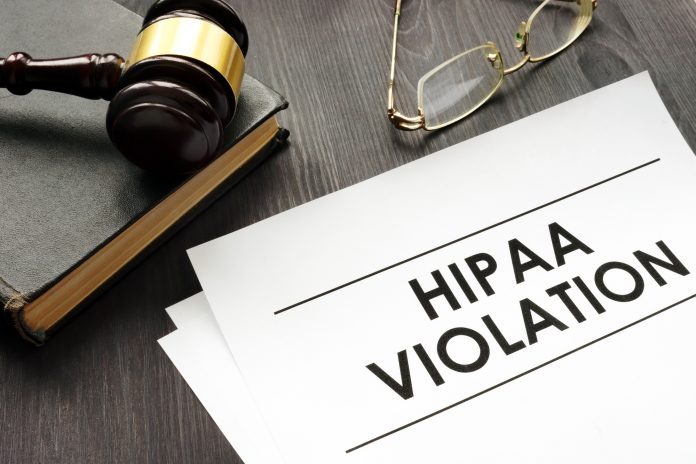Table of Contents
Introduction
If you’re in the healthcare industry or a business that uses, transmits, and stores protected health information (PHI), then you’ve probably heard about the Health Insurance Portability and Accountability Act or HIPAA. This federal regulation is intended to protect sensitive health information against unauthorized access and other cyberthreats. Because of this, strict adherence to HIPAA rules and regulations are expected from the covered entities and business associates that handle confidential patient health information.
Moreover, to ensure compliance, the covered entities and business associates need to conduct training to make sure all the employees understand and follow the rules and regulations and avoid the risks of cyberthreats, including phishing attacks. However, the failure of your organization to comply with the HIPAA privacy and security rule comes with some legal consequences that you won’t surely want to deal with.
With that said, here are three legal consequences of HIPAA noncompliance worth knowing from the get-go:
Civil Penalties
One legal consequence of HIPAA noncompliance is the payment of civil money penalties. However, keep in mind that civil fines are divided into three categories, depending on the level of intelligence and intention of the violating party. These categories can be categorized into the following:
- Reasonable Cause: This refers to a situation where the violation is due to a reasonable cause or when you’ve known of the violation and didn’t deliberately neglect it. The fines can include not more than USD$1,000 for first violations and up to USD$50,000 for repeat violations.
- Ignorance: This refers to a situation where you had no knowledge of the violation. For your violation, you may have to pay not more than USD$100 if it’s the first time and up to USD$50,000 if you’re a repeat violator.
- Willful Neglect: This refers to a situation where you fully knew of the rules and deliberately and willfully violated them without justifiable cause. When it comes to the fines, the amount usually depends on whether correction has been done within the 30-day period. For example, you may have to pay from USD$10,000 to USD$50,000 for a corrected violation and a higher flat rate of USD$50,000 for an uncorrected violation.
As enumerated, non-compliance of the rules and regulations can cost you hundreds to thousands of dollars. That’s why it’s important to get familiar with the HIPAA rules so you could avoid civil fines in case of a violation. Finally, to make sure you remain compliant with HIPAA security protocols, make sure you conduct regular training sessions for all your employees.
Criminal Charges
Aside from the civil money penalties, HIPAA rules and regulations violators or those who failed to comply may also have to deal with criminal charges, depending on the extent and severity of the violation. For instance, if you or one of your employees committed the most serious violations, you can face criminal sentencing and jail time.
Generally, the criminal penalties incurred for HIPAA noncompliance can include the following:
- For no knowledge of the rule violated, up to 12 months’ imprisonment.
- For intentional deception in accessing protected health information, imprisonment of up to 5 years.
- For malicious intent, imprisonment of up to 10 years.
As you can see, violating HIPAA rules and regulations incurs heavy civil and criminal penalties. Therefore, if you don’t want yourself or your employees to face fail time because of these violations, then you need to enforce measures to safeguard sensitive patient information.
Sanctions
In addition to civil and criminal consequences, noncompliance of HIPAA rules can also mean sanctions for the covered entities and business associates. For example, if your organization is one of these covered entities and some of your employees committed a violation, you may be left with no choice but to discipline them and, in extreme cases, terminate their employment contracts and pay their wages if necessary.
However, on top of firing employees, they may also have to face some legal sanctions as provided for by the federal statute itself. But given the sanctions and terminations associated with noncompliance, your organization may need to spend more money as a result of the payment of fines as well as the costly employee turnover.
Bottom Line
Indeed, strict compliance with HIPAA can save yourself, your organization, and your employees from the legal consequences mentioned in this post. However, in the event you need to deal with these repercussions, the situation can be damaging, especially for your business. For this reason, it’s crucial for your organization to take the HIPAA compliance seriously.
Remember, by properly complying with the rules and regulations, you can safeguard all sensitive information and your organization from cybercrimes and other related security breaches.
LawSikho has created a telegram group for exchanging legal knowledge, referrals, and various opportunities. You can click on this link and join:
https://t.me/joinchat/J_0YrBa4IBSHdpuTfQO_sA
Follow us on Instagram and subscribe to our YouTube channel for more amazing legal content.
 Serato DJ Crack 2025Serato DJ PRO Crack
Serato DJ Crack 2025Serato DJ PRO Crack










 Allow notifications
Allow notifications


